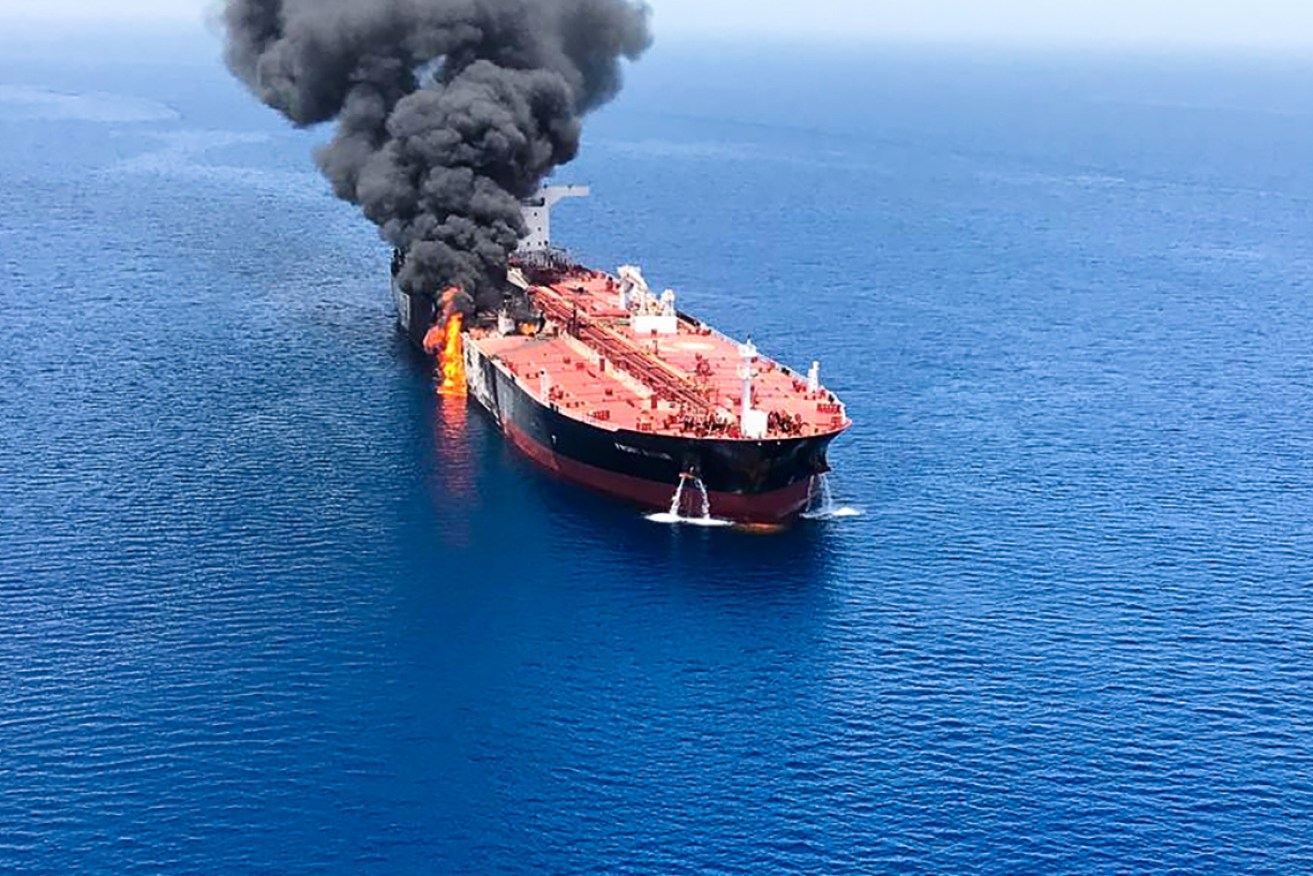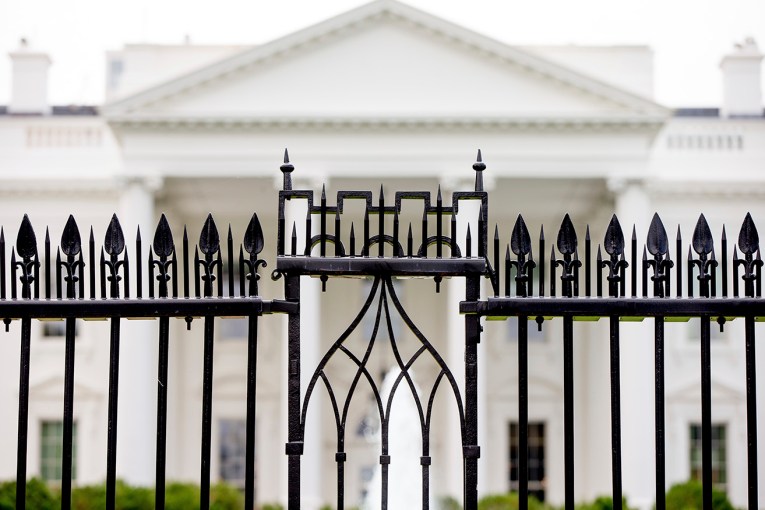US to bolster troops in the Middle East amid Iran tensions


One of the two tankers on fire last week. The US is to send more troops to the region. Photo: Getty
The US will send a further 1000 troops to the Middle East amid growing tension with Iran over oil tanker attacks and Tehran’s plan to increase its stockpile of enriched uranium.
The US’s concerns about Iran have escalated since last week’s attacks on two oil tankers in the Gulf of Oman.
The US military on Monday released images that it said bolstered its claim Iran was behind the attacks. Tehran continues to deny responsibility.
The new Middle East deployment would be on top of an increase of 1500 troops announced last month. That followed more tanker attacks in May, which Washington also blamed on Tehran.

The US Department of Defence says this photo shows Iranian military after removing a mine from one of the tankers. Photo: Getty
The standoff comes more than a year after US President Donald Trump announced Washington would withdrawing from a 2015 nuclear deal.
Iran said on Monday it would soon breach limits on how much enriched uranium it can stockpile under the deal, which a White House National Security Council spokesman described as “nuclear blackmail.”
The 2015 accord, which Iran and the other signatories have maintained following the US withdrawal, caps Iran’s stock of low-enriched uranium at 300 kilograms enriched to 3.67 per cent.
“We have quadrupled the rate of enrichment [of uranium] and even increased it more recently, so that in 10 days it will bypass the 300 kilogram limit,” Iran’s Atomic Energy Organisation spokesman Behrouz Kamalvandi said on Monday.
The move further undermines the nuclear pact, which was also signed by Russia, Britain, Germany, China and the European Union. But Iranian President Hassan Rouhani said the collapse of the deal would not be in the interests of the region or the world.
Mr Rouhani said on Monday that European nations still had time to save the accord.
“It’s a crucial moment, and France can still work with other signatories of the deal and play an historic role to save the deal in this very short time,” he was quoted as saying during a meeting with France’s new ambassador in Iran.

A US Defence Department photo showing one of damaged tankers. Photo: Getty
Tensions remain high in the Middle East after last week’s oil tanker blasts. On Tuesday, Iran accused its main regional rival, Saudi Arabia, of adopting a “militaristic, crisis-based approach” for blaming Tehran for the attacks.
Saudi Crown Prince Mohammed bin Salman on Sunday urged the international community to take a “decisive stand” over the attacks – but said the kingdom did not want a war in the region.
“Salman’s charges against Iran in various situations are a continuation of Riyadh’s misguided approach and attempts to escape the problems brought on by their own policies,” Iranian Foreign Ministry spokesman Abbas Mousavi said, according to state TV.
Meanwhile, US Secretary of State Mike Pompeo has spoken to officials from the North Atlantic Treaty Organisation, China, Kuwait, South Korea, Britain and other countries to share its evidence of Iran’s involvement in the attacks on the Norwegian and Japanese tankers.
On Sunday, Mr Pompeo said the US did not want to go to war with Iran but would take every action necessary, including diplomacy, to guarantee safe navigation through Middle East shipping lanes.
Saudi Energy Minister Khalid al-Falih said on Monday that countries must co-operate to keep shipping lanes open for oil and other energy supplies to ensure stable supplies.
Iran said it was in charge of security in the Gulf and the Strait of Hormuz and urged US forces to leave the region.
“We have always said we guarantee the security of the Persian Gulf and the Strait of Hormuz,” secretary of Iran’s Supreme National Security Council Ali Shamkhani was quoted as saying by the state broadcaster IRIB.
-with AAP








